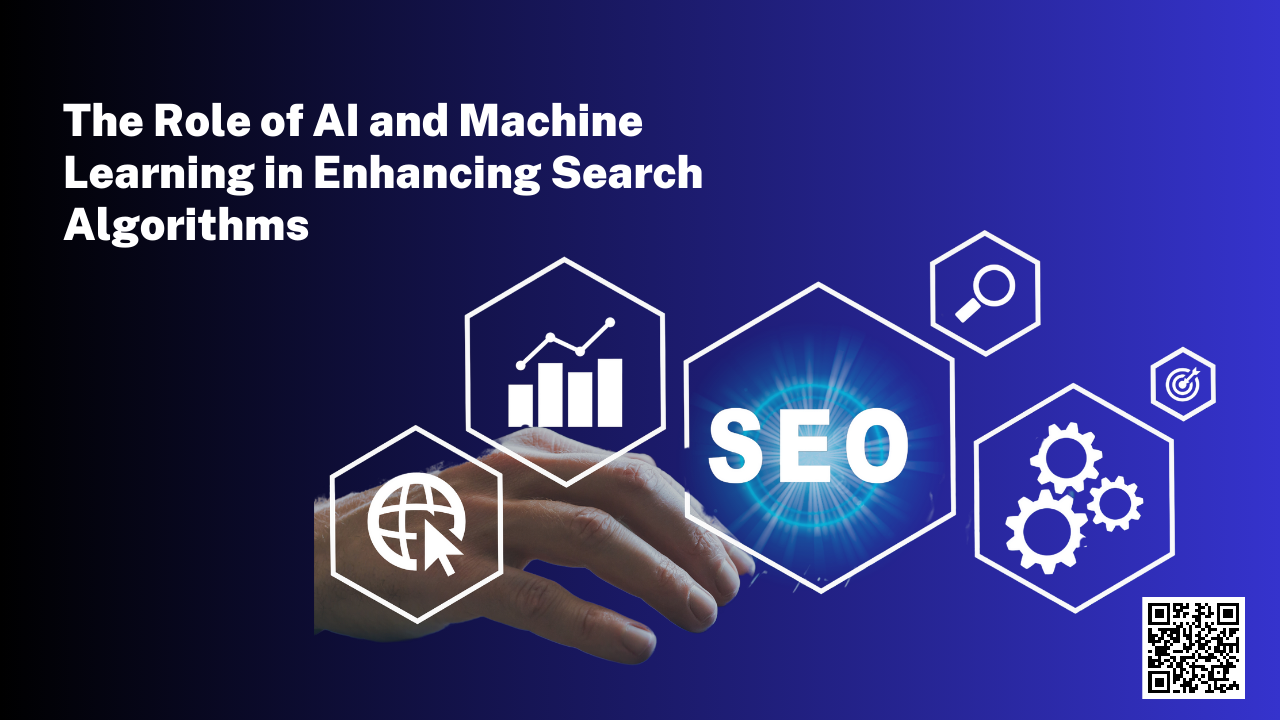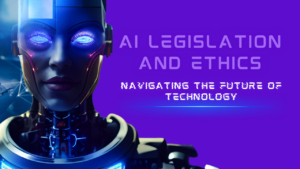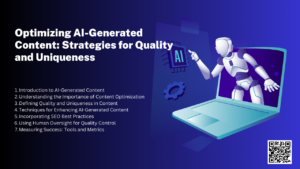- Introduction to AI and Machine Learning in Search
- Understanding User Intent through AI
- AI-Driven Content Generation
- Personalization of Search Results
- The Impact of AI on Search Ranking Factors
- Challenges in Implementing AI in Search Engines
- Future Trends in Search Algorithms Powered by AI
- Ethical Considerations in AI and Search
- Conclusion: The Ongoing Evolution of Search with AI
Introduction to AI and Machine Learning in Search
Artificial Intelligence (AI) and Machine Learning (ML) are increasingly becoming integral components in the field of search technology. These advanced technologies enable search algorithms to enhance their performance by processing vast amounts of data and improving their accuracy in delivering relevant search results to users. AI refers to the simulation of human intelligence in machines that are programmed to think and learn like humans, while machine learning is a subset of AI that focuses on the development of algorithms that allow computers to learn from, and make predictions based on, data.
The evolution of search algorithms has transitioned from simple keyword matching and basic relevance ranking to sophisticated AI-driven processes that consider context, user intent, and personalization. Initially, traditional search engines relied on straightforward algorithms that identified and ranked pages based on keyword density and backlinks. However, these methods often fell short in providing meaningful and contextually relevant results, leading to a demand for more advanced solutions.
With the incorporation of AI and machine learning, search engines can now analyze user interactions and behavior, allowing them to refine search results based on individual preferences and past search history. This has significantly transformed user experience, as search engines are now capable of understanding complex queries and generating pertinent results that align closely with user expectations. Techniques like natural language processing (NLP) additionally empower search algorithms to interpret and respond to user queries in a more human-like manner, thereby enhancing the overall efficacy of search functionalities.
Ultimately, the integration of AI and machine learning in search technology represents a major advancement toward developing intelligent systems that can understand and cater to users’ needs with unprecedented accuracy and efficiency. As these technologies continue to evolve, their impact will render traditional searching methods increasingly obsolete, paving the way for a smarter search landscape.
Understanding User Intent through AI
Artificial Intelligence (AI) has significantly transformed how search algorithms understand user intent behind search queries. At the heart of this transformation is Natural Language Processing (NLP), which allows machines to interpret and respond to human language in a meaningful way. By employing NLP, search algorithms can analyze not just the words typed into a search bar but also the context and nuances behind those words, facilitating a deeper understanding of what users truly seek.
One crucial aspect of understanding user intent is the ability to recognize synonyms and related terms. Advanced search algorithms utilize AI to identify when different phrases convey similar ideas, thus broadening the scope of search results. For instance, if a user searches for “best Italian restaurants,” the algorithm can also present results that include “top Italian eateries” or “Italian dining options,” thereby enhancing the relevance of the results. This capability is exceptionally beneficial for addressing varying search behaviors or preferences, leading to a more effective user experience.
Furthermore, AI analyzes user behavior patterns to predict intent. By examining previous interactions, such as clicks, time spent on pages, and query modifications, algorithms can refine their understanding of what the user wants. For example, if a user frequently seeks information on healthy recipes, the search engine may prioritize content related to healthy eating in future queries, even if the user’s wording changes. This predictive capability underlines the continuous learning nature of modern search algorithms.
An exemplary illustration of successful intent recognition can be observed with voice search functionality. AI-driven voice assistants often excel at discerning user intent even when queries are phrased conversationally, providing users with precise answers promptly. Thus, the integration of AI and machine learning in search engines not only enhances query understanding but also results in a more tailored and efficient search experience.
AI-Driven Content Generation
Artificial intelligence (AI) and machine learning are revolutionizing content generation in the digital marketing landscape. Tools like ChatGPT exemplify the capabilities of AI in producing high-quality, relevant content efficiently. These advancements not only optimize productivity but also enhance the overall user experience by delivering information that caters closely to search intent.
One key benefit of utilizing AI in content generation is the ability to create personalized and contextually appropriate material at scale. AI algorithms analyze extensive datasets to understand user preferences and search behaviors. Consequently, they generate content that is not only engaging but also aligned with the interests of potential audiences. This significantly boosts the relevance of articles, blog posts, and other forms of digital content in search engine results. As a result, businesses can maintain a strong online presence and attract more organic traffic.
Furthermore, AI-driven systems improve the SEO value of the generated content. By naturally integrating keywords and phrases that resonate with what users are searching for, these tools help optimize visibility. The sophisticated language models employed by AI can produce text that incorporates pertinent synonyms and semantic equivalents, ensuring a broad reach without falling into the pitfall of keyword stuffing. This strategic approach to content generation aids businesses in meeting the ever-evolving demands of search algorithms.
Looking ahead, the future of content marketing appears promising with the continuing integration of AI technologies. As search engines evolve, they increasingly prioritize high-quality, relevant content that addresses user needs. Companies that embrace AI-driven content generation are likely to gain a competitive edge in search rankings and audience engagement. By leveraging these tools effectively, brands can anticipate shifts in consumer behavior and adapt their strategies accordingly, maintaining relevancy in an increasingly crowded digital space.
Personalization of Search Results
Artificial Intelligence (AI) and Machine Learning (ML) have fundamentally transformed the landscape of search algorithms by facilitating the personalization of search results. This personalization is derived from an intricate analysis of user preferences, search history, and demographic information. By leveraging these data points, AI algorithms can effectively tailor search results to meet individual users’ needs, creating a more relevant and engaging experience.
One of the primary techniques employed in personalizing search results is the use of collaborative filtering. This technique analyzes the behavior of similar users to predict what content or products may appeal to a specific individual. For instance, if a user frequently searches for environmental topics and shows interest in certain brands, the algorithm may prioritize search results that align with these interests, thereby enhancing the relevance of the information presented.
Furthermore, natural language processing (NLP) plays a crucial role in understanding user intent behind search queries. By interpreting the context of a query, AI can deliver results that reflect not only the words typed but also the underlying meaning. This depth of understanding allows for a more nuanced approach to personalization, ensuring that users receive results that resonate with their interests and queries.
The implications of personalized search algorithms are profound. Users are more likely to find the desired information quickly, leading to increased satisfaction and engagement. When search results are tailored to individual preferences, users are encouraged to interact more with the search platform, which can enhance overall site engagement metrics. Moreover, businesses benefit from personalized search results as they can attract more prospective customers who are presented with content that aligns closely with their needs.
In conclusion, the incorporation of AI and ML into search algorithms emphasizes the importance of personalization in enriching user experiences. By analyzing various data sources, these technologies can ensure that search results are not only relevant but also meaningful, ultimately leading to heightened user satisfaction and engagement.
The Impact of AI on Search Ranking Factors
Artificial intelligence (AI) has significantly transformed the landscape of search engine optimization (SEO) by influencing key search ranking factors. Traditional algorithms primarily focused on keyword density and backlinks, but recent advancements in AI have led to a paradigm shift towards more holistic metrics that encompass user experience. One of the most prominent emerging metrics is page experience, which evaluates various elements that contribute to how users interact with a website.
Page experience encompasses several criteria, including loading speed, mobile-friendliness, and the visual stability of content as it loads. These aspects are crucial as search engines, like Google, strive to deliver the most relevant and satisfactory results to users. Ensuring a seamless experience on both desktop and mobile devices significantly enhances a website’s likelihood of ranking higher in search results. AI algorithms assess these factors to determine the overall performance of a website in real-time. This shift reflects a broader understanding that user satisfaction is paramount in the digital age.
Additionally, core web vitals serve as essential benchmarks for measuring real user experience. These vital metrics include Largest Contentful Paint (LCP), First Input Delay (FID), and Cumulative Layout Shift (CLS). They quantify the loading performance, interactivity, and visual stability of a webpage. AI plays a crucial role in analyzing these metrics, allowing search engines to provide users with pages that load quickly, respond promptly, and maintain a consistent layout. By integrating these metrics into their algorithms, search engines can use AI to evaluate a website’s relevance and quality more comprehensively, which directly influences search ranking outcomes.
An increased focus on user experience through metrics like page experience and core web vitals highlights the growing importance of AI in SEO. As search engines continue to evolve, websites must prioritize these factors to remain competitive in the ever-changing digital landscape.
Challenges in Implementing AI in Search Engines
In recent years, the integration of Artificial Intelligence (AI) and Machine Learning (ML) into search algorithms has undeniably transformed how information is retrieved online. However, this evolution is not without its challenges. One notable issue is the presence of bias in AI models. Many algorithms are trained on datasets that may inadvertently reflect existing societal biases. This can lead to skewed search results that perpetuate inequalities, making it essential for developers to ensure that their datasets are diverse and representative. Addressing bias requires continuous monitoring and adjustments, which can complicate the development and implementation processes.
Another significant concern surrounds data privacy. As search engines become increasingly sophisticated in understanding user preferences and behaviors through AI, they often require access to vast amounts of personal data. The collection and storage of this sensitive information raise ethical questions and can lead to violations of users’ privacy rights. Striking a balance between improving search results through user data while respecting privacy concerns is a complex task that requires transparent policies and robust security measures.
Furthermore, accurately measuring user satisfaction presents another layer of difficulty. Traditional metrics for evaluating search effectiveness, such as click-through rates or time spent on page, may not fully capture user intent or the quality of the experience. Leveraging AI to enhance these measurements is challenging, as it requires a deep understanding of user behavior and context. Search algorithms must go beyond mere statistical analysis to interpret nuanced user interactions, which can be a formidable challenge in the rapidly changing digital landscape. The successful implementation of AI in search engines depends on overcoming these challenges to deliver a balanced and satisfactory user experience.
Future Trends in Search Algorithms Powered by AI
As artificial intelligence (AI) and machine learning technologies continue to evolve, the landscape of search algorithms is poised for significant transformation. One of the most notable future trends includes the integration of natural language processing (NLP) capabilities, enabling search engines to better understand user intent and context. This development will potentially allow for more accurate and personalized search results that cater to individual preferences and behaviors. By analyzing vast amounts of data, AI can identify subtle patterns in user queries, making algorithms smarter and more intuitive.
Another anticipated trend is the rise of voice search optimization. The proliferation of smart speakers and voice-activated devices has changed how users interact with search engines. As AI improves voice recognition accuracy, algorithms will increasingly consider spoken language nuances, allowing for more conversational queries. This shift could necessitate a reevaluation of current SEO strategies, as businesses will need to optimize content based on long-tail keywords and natural speech patterns.
Additionally, the incorporation of AI in image and video search capabilities is likely to become more prevalent. As visual content continues to dominate online platforms, search engines will leverage AI and machine learning algorithms to enhance image recognition and context understanding. This will enable users to search for content using images instead of text, fundamentally restructuring how searches are conducted and the type of results that are generated.
Moreover, the growing focus on ethical AI in search algorithms is important to address issues related to bias and fairness. As AI technologies are integrated into search functionalities, it becomes crucial to ensure algorithms are designed transparently and inclusively. This will not only improve user trust but also contribute to a more equitable online information environment.
Ultimately, the convergence of these trends illustrates the dynamic future of search algorithms, with AI and machine learning driving substantial improvements in efficiency, accuracy, and user experience.
Ethical Considerations in AI and Search
The integration of artificial intelligence (AI) and machine learning into search algorithms has revolutionized information retrieval, yet it also brings forth a series of ethical considerations that must be addressed. One primary concern is transparency. As AI systems become more complex, understanding how they operate becomes increasingly difficult for users and developers alike. This obscurity raises questions about the accountability of algorithms in curating content. To foster trust between users and AI systems, it is crucial for developers to ensure that the underlying mechanisms are comprehensible and can be audited. Providing clear information on how search results are generated can enhance user confidence and encourage more responsible usage of technology.
Another significant ethical consideration pertains to data privacy. As search algorithms rely heavily on vast quantities of user data to personalize results, safeguarding this information becomes paramount. Users must be assured that their data is handled with integrity and kept confidential. This implies a rigorous approach to data protection measures, ensuring compliance with existing regulations such as the General Data Protection Regulation (GDPR). If privacy concerns are overlooked, it risks undermining the user’s faith in the AI systems designed to enhance their search experience.
Moreover, the responsibility of algorithm developers cannot be understated. Creating search algorithms that are fair and accurate is a critical ethical obligation. Biases in AI can lead to discriminatory outcomes in search results, whereby certain groups may be unfairly advantaged or disadvantaged. Developers must adopt rigorous testing protocols to identify and mitigate potential biases during the development phase. Additionally, incorporating diverse perspectives in teams responsible for algorithm design can contribute significantly to fairer outcomes. Ultimately, a collaborative effort among technologists, ethicists, and users is essential to navigate the multitude of ethical issues presented by AI-enhanced search algorithms.
Conclusion: The Ongoing Evolution of Search with AI
The continuous evolution of search algorithms is being significantly shaped by advancements in artificial intelligence (AI) and machine learning. These technologies have become integral to enhancing the accuracy, efficiency, and relevance of search results, fundamentally changing how users interact with digital content. AI-driven algorithms analyze vast amounts of data to identify patterns and user behavior, enabling search engines to deliver personalized experiences that cater to individual needs.
One of the most notable contributions of AI is its ability to understand natural language queries more effectively. Machine learning algorithms have improved the understanding of context and semantics, which allows search engines to interpret user intent beyond simple keyword matching. As a result, users benefit from more relevant and intuitive suggestions, transforming their search journeys into streamlined processes that yield satisfying outcomes.
The impact of AI extends beyond just improving search query results. It also plays a prominent role in organizing and ranking content, ensuring that the most relevant information is readily accessible. As AI continues to evolve, so too will the techniques that search engines employ to index and retrieve content, leading to a more dynamic interaction between users and search platforms.
Looking ahead, the integration of AI and machine learning in search algorithms will only deepen. The future of search is poised for innovations such as enhanced visual search, voice-assisted navigation, and more sophisticated personalization mechanisms, all driven by these advanced technologies. The ongoing development of AI will undoubtedly reshape not only search engine functionality but also the overall landscape of content discovery on the internet.
In conclusion, AI and machine learning are not merely enhancements to search algorithms; they are catalysts for a transformative journey in how users discover and engage with information online. As these technologies advance, they will continue to play a crucial role in defining the future of search and user experiences.




